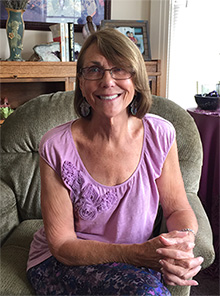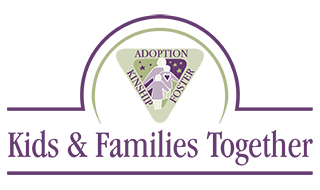Having Faith September 2015
Dear Faith,
I am about to foster a child for the first time. She is five years old and has an extensive history of abuse and neglect. I want to do a good job of helping her to have good self-esteem following years of experiences that have surely impacted her in negative ways. They told me in the pre-placement classes that being a therapeutic parent will be challenging. I have known friends that have said it was too hard to foster a child with trauma and they ended up terminating their placement. I am honestly scared and unclear where to start.
Wanting some Ideas for Self Esteem Building in Ventura
 Personally, I think the best place to start is knowing that what you are signing up for will be hard but can also be quite rewarding. You will not be alone though, you can get support and education at every juncture of your journey. Our organization, Kids & Families Together has some great programs to help you build a strong relationship with your foster child and I would encourage you to use all the best resources that are provided to you that are helpful along your journey with your new foster placement.
Personally, I think the best place to start is knowing that what you are signing up for will be hard but can also be quite rewarding. You will not be alone though, you can get support and education at every juncture of your journey. Our organization, Kids & Families Together has some great programs to help you build a strong relationship with your foster child and I would encourage you to use all the best resources that are provided to you that are helpful along your journey with your new foster placement.
A child’s self-esteem is acquired, not inherited. It is developed through your consistency in valuing your child as she develops. For you to give self-esteem to your child, it helps if you have a high level of self-esteem and confidence yourself. If you have been holding on to a poor opinion of yourself since childhood, and this is getting in the way of your current ability to parent effectively, then you have to confront your past.
You need to be there as an emotionally regulated adult to help your foster child confront the shame she feels from the abuse of her past, so that she can fully move forward towards the life she so deserves to live. She can only do this in the context of a healthy relationship with you. If you do not have a high self-worth, then you need to seek out proper treatment for yourself so that your “unfinished business” does not affect your child’s development.
Every one of us has a little voice inside our head guiding us. Sometimes the voice is positive and sometimes it is negative. I am a true believer that each one of us has the ability to change internal negative voices into positive ones. This takes practice, dedication, and a desire to live a life of purpose. If you believe your life of purpose is to provide a foster or adopted child with a second chance in life, then you must be in a positive healthy place to do so. If you are not, then please do the “self -work” you need to get ready. The last thing that these children need who find themselves in the welfare system due to no cause of their own, is more abandonment and disappointment.
– Faith
 Kids and Families Together
Kids and Families Together